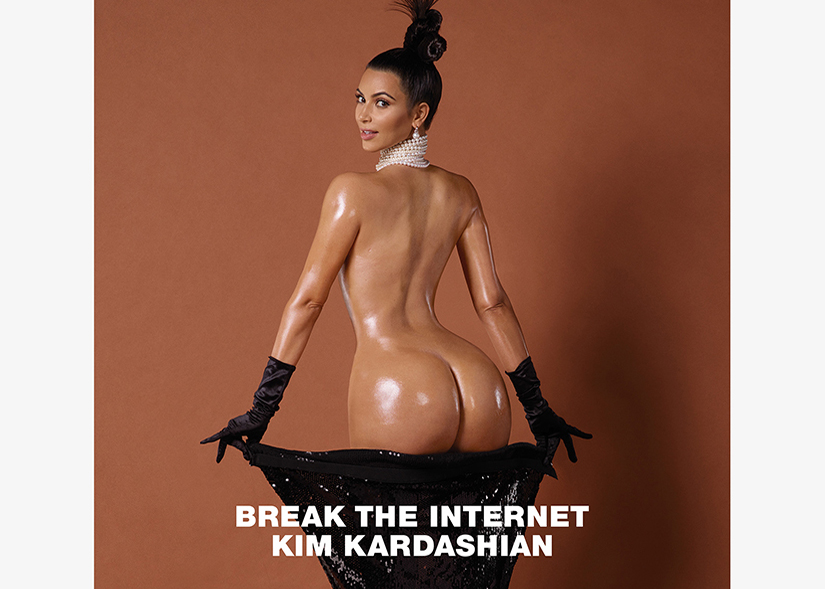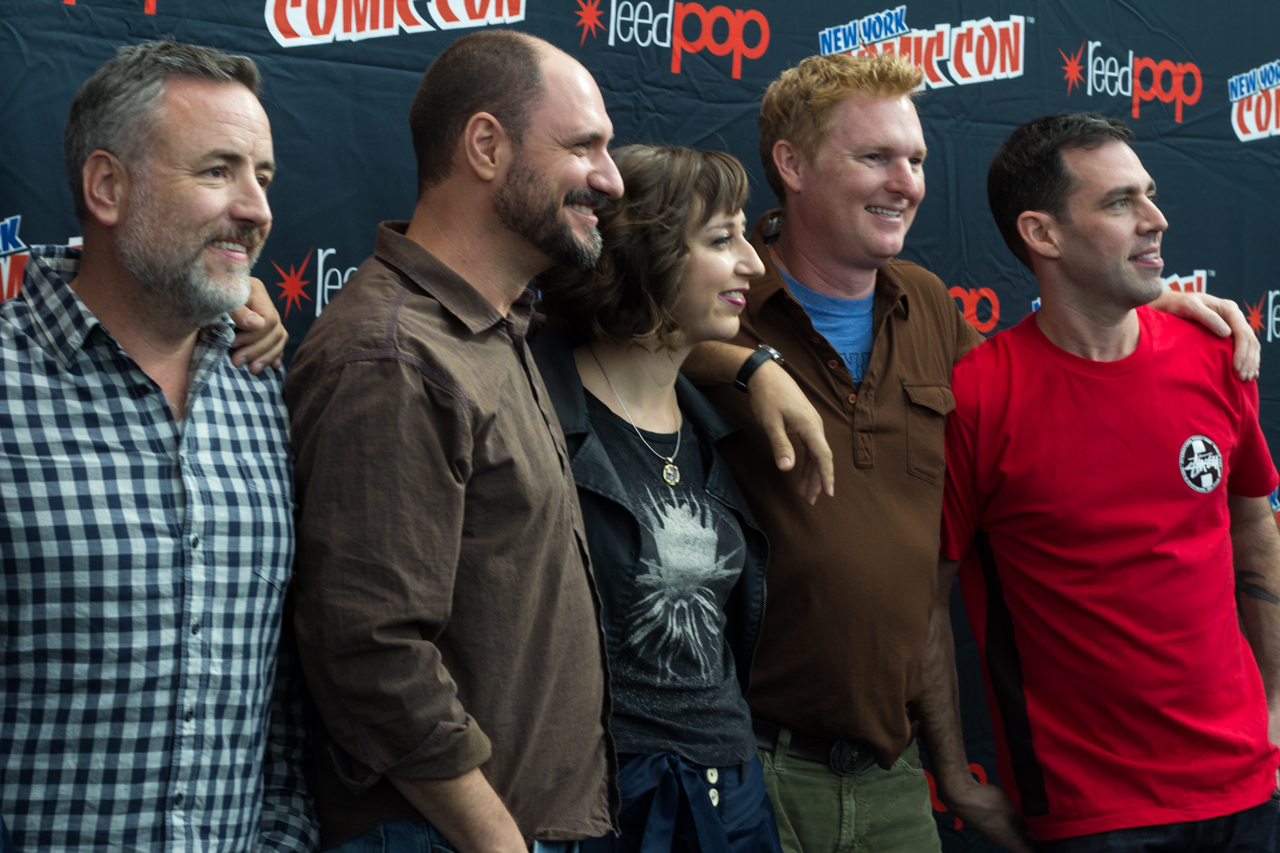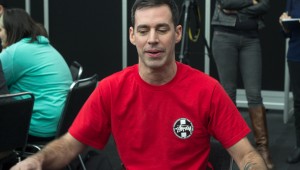Inherent Vice is like Airplane? Surely You Can't Be Serious
The first hints of what Inherent Vice was like came in July. Paul Thomas Anderson screened his new movie months early for select writers and industry people, and word got out about what they saw. Various impressions were compiled by Kevin Jagerrnauth over at The Playlist, including the following insider assessment: "It's BONKERS—weird, weird, weird. It made me laugh out loud several times, but not in the ways you might expect. The humor is not so much Boogie Nights, as I think a lot of people are expecting. For reals, it tips into, like, Zucker Bros.-level gags and broad humor. But, obviously, mixed with his other sensibilities. Strange, beguiling tone." (The Big Lebowski and The Long Goodbye were mentioned as well, which makes sense for an LA noir story about a stoner private detective made by an unabashed Robert Altman fan.)
When I reviewed Inherent Vice at Unseen Films during the New York Film Festival (NYFF), I mentioned seeing Anderson in conversation with festival director Kent Jones. Anderson showed clips of work that informed his approach to Inherent Vice. He opened with Police Squad!, the short-lived 1982 show by Jim Abrahams, David Zucker, and Jerry Zucker that would spawn The Naked Gun series. Zucker-Abrahams-Zucker were also responsible for the oddball cult comedy The Kentucky Fried Movie and the classic spoofs Airplane! and Top Secret!. Anderson said that he didn't try to redo Police Squad! with Inherent Vice, but he found the spirit of the work both liberating and encouraging as he was beginning the project. It makes sense to look to madcap comedy when tackling a Thomas Pynchon novel—he can be complicated, but he's often funny and always entertaining.
[youtube id="ixljWVyPby0" align="center" autoplay="no" maxwidth="829"]
A number of reviews of Inherent Vice have said the film is like a Zucker-Abrahams-Zucker movie.
But it's really not.
There's a difference between influence and likeness, and some of the comparisons with Zucker-Abrahams-Zucker are grossly overstated. Inherent Vice is its own animal that moves at its own pace and with its own rhythm, and not necessarily the rhythm I get when reading Pynchon.
Watch a clip from Airplane! or The Naked Gun and you're getting a gag every 10 seconds, if not faster, and often more than one gag. Coming at all angles and different levels,the best Zucker-Abrahams-Zucker comedy is a meticulously crafted gag machine. One scene may be a reference to another film or a genre trope, and if the reference isn't funny on its own, there's usually wordplay and snappy verbal exchanges, and if that's not enough, there's usually a sight gag somewhere in the frame that winds up being funny; and if none of that was funny, it's on to the next gag as if the previous one didn't bomb. The zaniness is built on a blend of perfect timing and seemingly reckless velocity.
[youtube id="UbyrQFgRuHA" align="center" autoplay="no" maxwidth="829"]
Inherent Vice, by comparison, doesn't have the gag-every-10-seconds aesthetic. The trailers, maybe, but not the film itself, with its long takes and whispery dialogue, and wigged-out vibe rather than outright zaniness. It's a different kind of movie with a different kind of sensibility—paranoia rather than anarchy, and disillusionment rather than playfulness, which figures for a movie about the children of the 1960s realizing that they blew it and that the battle for the American soul was already lost.
To put it another way, if Zucker-Abrahams-Zucker is the comedy equivalent of Cliff Friend and Dave Franklin's "The Merry-Go-Round Broke Down" and Raymond Scott's "Powerhouse", Anderson's Inherent Vice is like Can's "Vitamin C" and Neil Young's "Journey Through the Past." (Both are on the film's soundtrack. More on Young a bit later.)
Police Squad! may have given Anderson the initial push, but Anderson is definitely the person pedaling the bike, which is why Inherent Vice has much more in common with The Master than The Naked Gun. While the fall of the counterculture is at the heart of Inherent Vice, Anderson uses the novel as a way to continue his exploration of relationships between men in opposition, sometimes diametrically. It was Daniel Plainview and Eli Sunday in There Will Be Blood, and it was Freddie Quell and Lancaster Dodd in The Master. Here it's hippie-dippie Doc Sportello (Joaquin Phoenix) and straight-edged Bigfoot Bjornsen (Josh Brolin), and it's also the hopey-dopey 1960s vs. the disillusionment of 1970s.
Part of the overstatement of the Zucker-Abrahams-Zucker influence is the parroting that people do when they hear an informed opinion. We've all at one time or another taken received perceptions as our own without actually processing them, and that may be at play here. Yet I think a larger part of the overstatement has to do with the need to find familiar footholds in a work that, like the insider mentioned at the beginning, is strange and beguiling in tone.
Anderson's combined a number of influences in the film; other clips shown during the NYFF conversation included Alex Cox's The Repo Man, Neil Young's Journey Through the Past, Alfred Hitchcock's North by Northwest, Quentin Tarantino's Jackie Brown, and the music video for "Oblivion" by Grimes directed by Emily Kai Bock. Different sources, different tones, and different ways for Anderson to get in the groove to make his movie, but it's purposeful: even though Inherent Vice isn't Pynchon's most difficult novel, it takes footholds in the familiar to explore seemingly unfamiliar territory like the writing of Thomas Pynchon.
And maybe that's why I get a different vibe when I read Pynchon than what Anderson gives in his adaptation (which is missing all of Pynchon's fake surf rock songs, sadly). When I read Pynchon, I usually think of The Marx Brothers and their zany, breakneck pace, but filtered through a mind obsessed with grand conspiracies, forces of opposition, the unending conflict between the preterite (the common folk) and the elect (the elite), and how to negotiate this world with that sort of worldview. Anderson gets a lot of that too, but to adapt is to give one's own take on something, and Anderson's take is filtered through his footholds and his obsessions. If it takes familiar footholds to explore the seemingly unfamiliar, it might take personal obsessions to adapt and reinterpret the work of an obsessive.
[youtube id="73oO2XA_ihk" align="center" autoplay="no" maxwidth="829"]
So rather than Zucker-Abrahams-Zucker comparisons, the real heart of Inherent Vice may be Young's wayward 1972 film Journey Through the Past, and perhaps Young's dark phase with "The Ditch Trilogy." Anderson showed a clip from Journey in which Young drives his vintage car into the woods, gets out, smokes a joint with his girlfriend, eats some strawberries, mumbles something, and then they get back in and drive off. It's a long single-take, a sunny day; it's a simpler time, and sort of beautiful because it's so worry-free and purpose-free. There's a scene in Inherent Vice over which Young's song "Journey Through the Past" plays, and it's one of the most memorable and moving parts of the movie, because it's about a simpler time, worry-free and purpose-forgotten, and there's just that residual love of the missing past before the future came and screwed everything up. In the past, an open lot, a dream; in the present, the dream's been replaced by the most vulgar kind of progress—a skyscraper.
While Pynchon's fake songs aren't present in Inherent Vice, Anderson brings two Neil Young songs that suit his sensibilities as a filmmaker, and that suit the film's overall sensibility. I've written that the Anderson who made Magnolia probably would have made a more Pynchon-esque film than the Anderson who made The Master, and while I still think that (and that Magnolia feels more Pynchon-esque to me than Inherent Vice), I have to admit that the old Anderson isn't the man in the present. And I should be groovy with that.
I want to rewatch Inherent Vice and listen to Neil Young's output during the first half of the 1970s, because that may be one of the ideal footholds into this film, and while Young's music may not be in the novel Inherent Vice, there are shared sensibilities in scope. The disillusionment with the 60s was there in 1972's Harvest ("The Needle and the Damage Done" was written for Danny Whitten of Crazy Horse after he died of an overdose). From "The Ditch Trilogy," the albums are titled Time Fades Away, On the Beach, and Tonight's the Night. Those titles taken together seem to hint at the shape of Inherent Vice with regard to the movement of time, and while the Pynchon in my head plays differently, Anderson's covering Pynchon in the style of Neil Young (among others), which is probably just the way it sounds in his head.
What The CIA Torture Report Says About Humanity
The Senate Intelligence Committee's report into the CIA's use of torture is finally being published, albeit in heavily redacted form. To begin, let's focus on what little positivity can be gleaned from a situation in which even our most forgiving hopes of living in a moral, compassionate society are surely set to be torn apart, piece by piece. Whatever this report may reveal and no matter how little of it is actually made public - supposedly no more than 600 pages out of 6,000 - some credit is due to the American government for the report existing at all.
Where I live, in the UK, the idea of our intelligence services being subject to any sort of accountability, or their actions challenged in any meaningful way, feels like a pipe dream at best. All we get are excuses, usually that such activities were legal - as though there has ever been an atrocity committed by a government and its agencies in history which wasn't - or 'necessary', though providing any sort of justification for that claim would supposedly endanger us all. If you thought that line about spies ending every sentence with "...but then I'd have to kill you" was nothing but a ridiculous joke, try listening to a British politician discussing defense for more than five minutes.
As this article from the Guardian reminds us, there are no investigations currently taking place into the complicity of European nations in CIA rendition and torture. It is easier to sit back and moralize about big, bad America than admit that through collaboration and acceptance, our supposed ideals and values are no less blighted by the contents of the Sentate Committee's report than our allies across the Atlantic.
But let's not skirt around the uncomfortable truth here. As the dominant superpower of Western society, the United States sets the moral standards by which most of the countries in which we live will operate. There may be differences here and there, but the culture and values we have accepted since the country's ascendancy in the aftermath of WW2 have been, at their core, defined by America. Freedom, democracy, capitalism, all ideas and institutions which have existed for a very long time, but been moulded into a shape which is today distinctly American. As we learn more about the horrors which have been perpetrated under the pretense of protecting those values, we must also admit that such actions have desecrated their meaning for all those who believe in them or live under their jurisdiction.
It is interesting to note, as mentioned in the Guardian article linked above, that the report's focus appears to have been far more on whether or not the CIA's extensive use of torture was effective as opposed to whether it was, on any level, moral. It's not difficult to understand why: in reiterating how ineffective torture was in acquiring information, it exposes the unforgivable hypocrisy of the CIA's repeated assertions to the contrary to justify their continued use of so-called 'enhanced interrogation' even though they knew it wasn't working. Not to mention that even in a society whose values are so clearly and frequently expressed as those of the US, the concept of 'morality' is nebulous at best. Make the right excuses, tell the right lies, and the definition of that word can be stretched about as far as you want it to.
Yet in framing the report around whether or not torture worked is to miss the point of why its use is so sickening. Had the CIA discovered some technique which, against all historical precedent, managed to deliver flawless intelligence each and every time, the fundamental question remains, inexorably, a moral one: is a society which allows one person to deliberately inflict pain on another a society in which we should be content to live?
My answer, unequivocally, is no. In the days and weeks to come, we will undoubtedly be repeatedly told that the use of torture saved many lives (though exactly how many, or under which circumstances, must of course remain a secret known only to the privileged few) and the people who perpetrated it were doing so to uphold our values and freedom. Wrong. Wrong, wrong, wrong, wrong, wrong. The people who perpetrated torture have not upheld our values and freedom, but burnt them to the ground by using them as justification for the suffering of others. When it comes to saving lives, even if we disregard the efficacy question, the use of such grotesque actions will only serve to galvanize our enemies and those who might be persuaded by their cause. Perhaps in the short term, attacks were prevented. But how many more will have been seeded long into the future?
And of the supposedly moral grey area in which torture is justifiable under certain circumstances? I refuse to believe that in the time it takes for torture to produce results of any sort, accurate or not, it is impossible to find an alternate method which does not involve disgracing everything we stand for. Some people's beliefs are so ingrained that they will never betray them no matter how hard they are pushed. On those people, torture is surely useless. For those whose beliefs are not so firmly set, inflicting pain will surely only reinforce the idea that such beliefs are justified and, in a state of otherwise total helplessness, resistance is the last form of victory possible. The CIA paid psychologists more than $80 million to develop torture techniques. Is it really so implausible that the same experts, with the same amount of money and the same knowledge of human psychology, could not have come up with a single more benevolent way of extracting information?
We must also not allow ourselves to believe that these events are somehow a one-off, which have never happened before and will never happen again. After all, you don't need to look very deep to see the long line of precedents in the recent and not so recent history of the United States. Meanwhile, as part of the research for a novel I'm currently writing, it was striking and shaming to see torture methods used by the British in Northern Ireland in the 70s - sleep and food deprivation, stress positions, sensory overload - reappearing as part of the Senate Committee's report. From the days of Empire to WW2, the British relationship with torture goes back a shamefully long way.
Sadly, that's true of human history in general: people's willingness to inflict pain on others from a position of power is an unwavering constant no matter how far back you look. The difference these days is that the pleas of ignorance which have traditionally been used as a shield are slowly but surely losing credibility. Whatever faults social media may have, it has been unprecedented in lifting the veil on the cruelties and abuses which have gone unspoken for centuries. Today, the only way to ignore the institutional rot which has been festering in the heart of our establishments - politics, media, policing, education, financial, religion - is to make the choice of deliberately turning away your head. We are at a crossroads where what can no longer be denied must either be rejected or accepted. That is why it is vital to not only speak up not only against torture, but other difficult subjects such as racism and the shaming of rape victims, while also arguing in favour of the values you want to see your society embodying going forward. Fairness; equal treatment for all; accountability and regulation of those in power.
Such half-hearted concessions as Barack Obama's casual acknowledgment of his predecessor's regime having 'tortured some folks' or his refusal to speak out against institutional racism in American police forces are no longer good enough. Let's stop accepting the culture of excusing rape; the redistribution of wealth from the poor to the rich in an increasingly predatory version of capitalism; the way we accept vagaries as excuses when we are told torture is the only option, or when TV shows like 24 and video games like Splinter Cell present it as heroic and infallible. Let's instead remember Star Trek: The Next Generation delivering one of the most powerful depictions of the inherent immorality and futility of torture in the 1992 episode, 'Chain Of Command: Part II' (below).
I think most people accept that secrets and confidentiality are important for intelligence agencies to be able to do their jobs effectively. That should not however give them permission to lie to the public and commit atrocities while brushing off any concerns with the patronizing and dangerous insistence that they be blindly trusted no matter what. It means they should be given the powers necessary to do their difficult work while remaining subject to rigorous oversight preventing them from abusing those powers, particularly when it comes to issues of basic human rights, privacy and freedom. On the evidence of the Snowden revelations or this latest report, it is clear that not only is that oversight not in place, but global intelligence agencies are either exploiting legal loopholes or simply lying to get around the few restrictions which do exist. It is telling and damning that the only person likely to see prison time as a result of this report is former CIA analyst John Kiriakou, the man who exposed the agency's use of torture and is currently serving two and a half years at a facility in Loretto, Pennsylvania. Some perpetrators have even been rewarded: one official who interrogated detainee Gul Rahman, who died in 2002 of hypothermia as a result of conditions at the CIA site in Afghanistan where he was held and tortured, was awarded $2,500 for his 'consistently superior work'.
The findings of the Senate Committee's report have already irrevocably damaged the ideas of freedom and democracy that are central to our way of life and what we hope distinguishes us from those who believe in oppression, hatred and murder justified by extremist ideologies. Whether those findings are allowed to disappear quietly after a few weeks once the novelty wears off or if they will continue to inform discussion about what is and is not acceptable in defense of our values will ultimately be decided by our willingness to continue fighting to build the kind of society we aspire to live in and the principles that must be applied to all without exception. Torture is not employed by those who want to hear people talk, but by those who want to hear them scream. Whether those people are called patriots or criminals is a question we will all have to answer, and sooner rather than later.
[youtube id="egyrU7exmt4"]
Female Ejaculation Censored From British Porn
A new set of regulations put into effect by the British government yesterday will censor female ejaculation from any UK-produced pornography. Among the sex acts to fall foul of the new rules are spanking, 'aggressive' whipping, watersports, facesitting and fisting, with the latter two among those marked out as 'life endangering'. Notions of consent have not been taken into account in compiling the list, which is already being heavily criticised for seemingly focusing on acts in which women either traditionally derive the greatest pleasure or are depicted as powerful and in control.
In interviews with Vice UK, producer and professional dominatrix Itziar Bilbao Urrutia, or Ms Tytania to her subs, called the regulations "absurd and surreal", while Jerry Barnett, founder of anti-censorship campaign Sex And Censorship, described them as "a set of moral judgements designed by people who have struggled endlessly to stop the British people from watching pornography." Director Erika Lust, writing for the Telegraph, fears the new rules will turn porn into a "boring, unrealistic, male fantasy of bimbos eagerly pleasing men as if it is their duty, where women are submissive and lack ownership of their sexuality."
Despite this widespread censorship being justified under the guise of child protection, the rules solely affect UK porn producers and in no way limit the rights or ability of viewers to seek out videos from abroad depicting the banned acts.
Few would deny that child access to pornography remains a very serious issue, especially when it comes to some of the more hardcore material which can potentially affect sexual development and expectations at a young age. At a time when casual social misogyny and the sexual mistreatment of women is finally being taken as seriously as it should, that these regulations so heavily focus on censoring depictions of female pleasure is not only damaging, but outright repellent. They enshrine in law the idea that male sexual satisfaction is more important and acceptable than that of women, while making seemingly arbitrary judgments on what is deemed 'good' and 'bad' sex between consenting adults.
In this case, such censorship represents a government attempting to enforce its outdated, puritanical and simplistic morality on a modern issue requiring more careful and considered education to help those affected better understand such essential ideas as consent, respect and the difference between sex as fantasy and in reality.
In any case, those Monty Python boys had better watch out. All together now...
[youtube id="FKeQpeDkoGc"]
Did Kim Kardashian Actually #BreakTheInternet? (NSFW)
Kim Kardashian's claim to fame was the infamous 2007 leak of her sex tape with ex-boyfriend Ray J. There's no escaping the fact. The fall of 2007 found Kardashian and her family make their reality TV debut on E!'s Keeping Up with the Kardashians. The rest, they say, is history. In the seven years that have followed, Kardashian has faced criticism over being "famous for being famous," a long line of fashion endorsements, an ill-received marriage (and whirlwind divorce) to NBA player Kris Humphries, a few forgettable film roles, and marriage to your favorite rapper's favorite rapper, Kanye West. As is the norm in pop culture these days, celebrities are shoved down our throats in grocery store tabloids, gossip sites, and social media.
By now, everybody is aware of Paper's tantalizing photo spread and fluff piece on the most famous Kardashian. I have no real criticism with writer Amanda Fortini's expose on Kim beyond its "written just to be written" subject matter. However, in the 24-hour timetable from Kardashian's mooning of the internet to the full article and photo spread release, was the internet actually broken?
If there's anything that will get people talking, it's sex. And for that, well done Paper. Instead of creating some interesting, creative, and compelling content, you paired up with one of pop culture's most powerful female figures (for better or worse), paired her with an unbelievably talented photographer in Jean-Paul Goude, and worked to the lowest common denominator to boost site traffic, increase sales for a physical magazine in the wake of print's dying culture, and get people talking.
But what's more important? Becoming a trending topic or actually breaking the internet with something worthwhile of being considered "groundbreaking"? I understand the importance of embracing pop culture and entertainment when running a media outlet - obviously - and I understand how celebrity can make or break an outlet's popularity and sheer survival in a wide-open internet where we're all competing for hits, Twitter mentions, and Facebook likes. But with articles like Paper's "No Filter: An Afternoon with Kim Kardashian," where's the substance? As Kim joked herself on Twitter, "Because we know you came just [to] read the article..." she understands and acknowledges just how empty the article really was.
So here we are now, with pro-Kim crowds embracing how her Mom boobs really did #BreakTheInternet and anti-Kim crowds calling for people to #FixTheInternet. For a pop culture entity who has tried (and succeeded... at times) to legitimize herself since the sex tape, what do these photos ultimately say about Kim Kardashian, the person and the brand? Is she fully realizing who she is and accepting that which propelled her to stardom in the first place? Or is all of this an attempt to stay relevant before her relevancy runs the risk of fading?
It's too early to tell. And ultimately, what does it matter in the end? You're all here just to "read the article" anyways, right?
It's Election Day! Make Sure You Vote
Today marks the mid-term elections across the country. If you haven't voted early or done absentee voting, please find your way to a polling place and ensure your voice is heard, whether you politically lean left or right. I especially urge Illinois residents to get out and vote as there are some really important measures on the ballot up for vote today, such as:
- Right to Vote Amendment: Provides that no person shall be denied the right to register to vote or to cast a ballot in an election
- Crime Victims' Bill of Rights: Modifies the Crime Victims' Bill of Rights by strengthening the rights of crime victims during criminal court proceedings
- Minimum Wage Increase : Advises the legislature to increase the state's hourly minimum wage to $10
- Birth Control in Prescription Drug Coverage: Advises the legislature to require prescription birth control to be covered in prescription drug coverage health insurance plans
- Millionaire Tax Increase for Education: Advises the legislature to increase the tax on income greater than one million dollars to provide additional revenue to schools
If you don't know where your nearest polling place is, you can visit this website to find your district's location.
[NYCC 2014 Photos] Bob's Burgers Roundtables
During the first day of New York Comic Con 2014, I had the chance to take part in roundtable interviews with the cast and crew of the ever-popular Bob's Burgers. While the videos of those interviews will be incoming, I took some photos of the various roundtables featuring Kristen Schaal, H. Jon Benjamin, Loren Bouchard, John Roberts, Eugene Lirman, Larry Murphy, and Bobby Tisdale, which you can see below. Expect more from the Bob's Burgers roundtables next week, and be sure to keep it tuned to Ruby Hornet for more from New York Comic Con 2014.
You can check out some more of my behind the scenes Bob's Burgers roundtable interview photos on my Flickr.
[RH Photos] Riot Fest 2014: Day 1 (9/12/2014)
Photos by Geoff Henao.
After a long year, Riot Fest finally returned to Humboldt Park last Friday, and with it was an unseasonal chill and rain that attempted to damper the good mood that spread across the crowd. The move to the Northern end of the park was necessary for the festival to grow, adding a couple more stages to the festival grounds. Unfortunately, this also meant trampling through muddier grounds that weren't covered by baseball field dirt. Nevertheless, the fatigue and callouses that formed on Riot Fest attendees' feet were more than justified by the amount of talent that performed at the three day event. Here is my recap of Riot Fest 2014: Day 1.
I started Day 1 off by checking out one of my favorite surprise performances from Riot Fest 2013, GWAR. As I mentioned in our "Bands to See" list, GWAR added a new vocalist following Dave Brockie/Oderus Urungus' death earlier this year. In his place was a platoon of vocalists, including ex-GWAR bassist Mike Bishop. GWAR has quickly become one of my favorite bands to photograph thanks to their elaborate costumes and stage theatrics that include beheading politicians and pop culture icons (Barack Obama was this weekend's victim) and spraying endless amounts of "blood" on the audience.
Following GWAR's set, I headed out to the Root Stage to catch Stiff Little Fingers' set. With my luck, they opened their set with their most popular song, "Suspect Device," following that up immediately with "Wasted Life." The crowd mostly consisted of older people, which made sense given the band's longevity. However, that's not to say their set was lacking energy; far from it. On a cold September afternoon, Stiff Little Fingers delivered a performance worth braving the mild drizzle for.
Afterwards, I soon made my way out to see NOFX. I'm not the biggest NOFX fan (or of pop-punk, for that matter), but my curiosity and cursory knowledge of the band led me to check them out. The band's singer and bassist (as well as Fat Wreck Chords founder/owner) Fat Mike is known for his sense of humor and open-mindedness. Sure enough, just as the band was preparing to take the stage, he began to berate and insult Failure, the band playing just before them on the stage directly across the field from them. If you're a fan of NOFX, especially Punk in Drublic, their Riot Fest set must have been magical for you. For myself, they were just a band to take photos of. Meh.
Unfortunately, I called it a night just after I shot NOFX due to the impending rain and not wanting to risk being sick for the rest of the festival. You can check out my photos of GWAR, Stiff Little Fingers, and NOFX below. We'll have more from Days 2 and 3 throughout the week!
You can find more of my photos from Riot Fest 2014: Day 1 here.
[Riot Fest] Riot Fest 2014 Video Playlist
With Riot Fest starting in a mere few hours, I thought it'd be fun to compile a video playlist of all of our 20 recommended bands for this year's festival. For the most part, Brynn and I incorporated live videos of each of our selections. I feel that live videos give a way better representation of an artist, especially when you're preparing to see them. The playlist order goes chronologically based on when they hit the stage, so the flow is admittedly not as cohesive and smooth as a playlist normally would be. However, we can all overlook this, right? Anyways, enjoy some amazing footage from some amazing bands below!













































